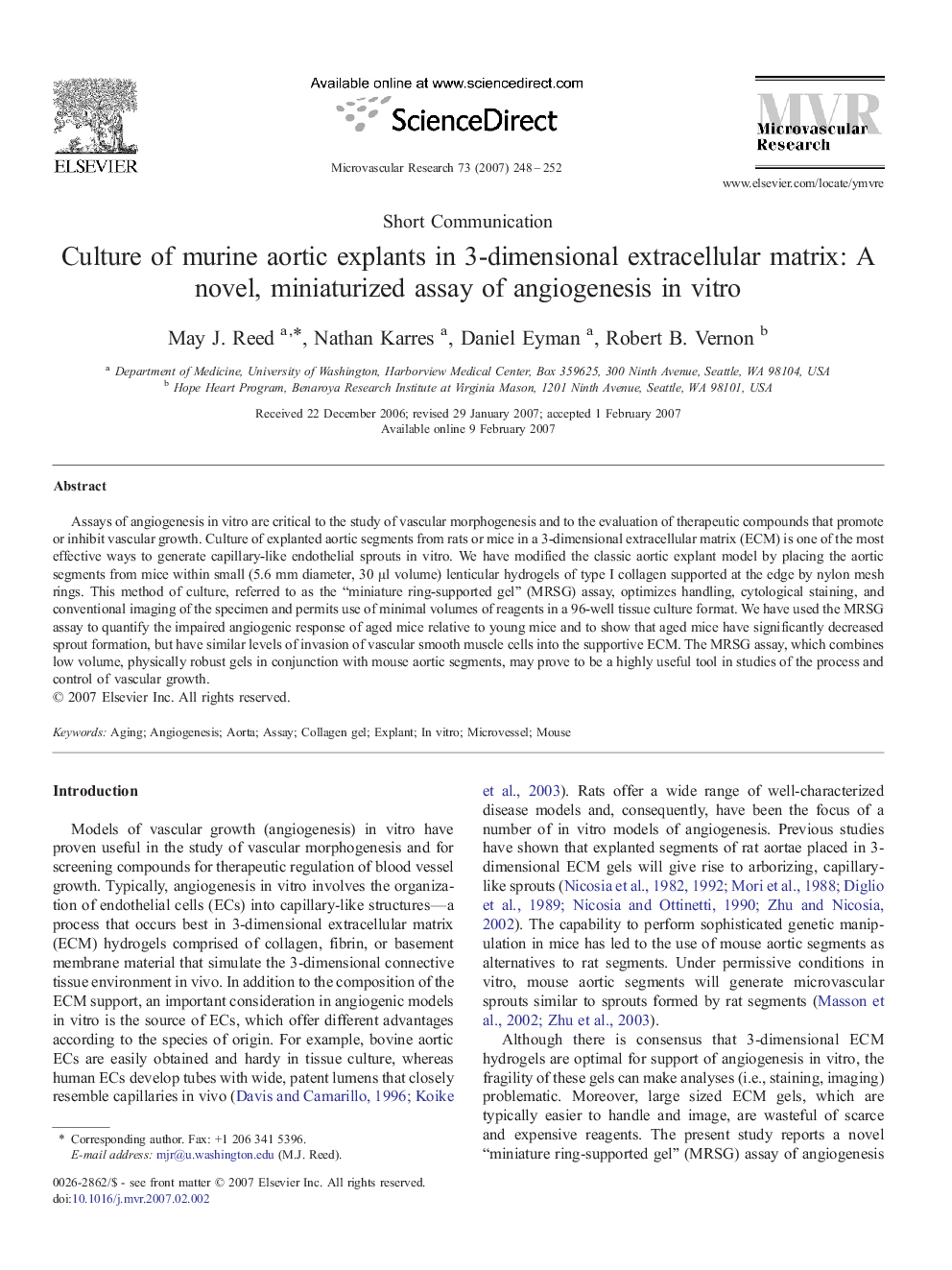| کد مقاله | کد نشریه | سال انتشار | مقاله انگلیسی | نسخه تمام متن |
|---|---|---|---|---|
| 1995506 | 1064977 | 2007 | 5 صفحه PDF | دانلود رایگان |

Assays of angiogenesis in vitro are critical to the study of vascular morphogenesis and to the evaluation of therapeutic compounds that promote or inhibit vascular growth. Culture of explanted aortic segments from rats or mice in a 3-dimensional extracellular matrix (ECM) is one of the most effective ways to generate capillary-like endothelial sprouts in vitro. We have modified the classic aortic explant model by placing the aortic segments from mice within small (5.6 mm diameter, 30 μl volume) lenticular hydrogels of type I collagen supported at the edge by nylon mesh rings. This method of culture, referred to as the “miniature ring-supported gel” (MRSG) assay, optimizes handling, cytological staining, and conventional imaging of the specimen and permits use of minimal volumes of reagents in a 96-well tissue culture format. We have used the MRSG assay to quantify the impaired angiogenic response of aged mice relative to young mice and to show that aged mice have significantly decreased sprout formation, but have similar levels of invasion of vascular smooth muscle cells into the supportive ECM. The MRSG assay, which combines low volume, physically robust gels in conjunction with mouse aortic segments, may prove to be a highly useful tool in studies of the process and control of vascular growth.
Journal: Microvascular Research - Volume 73, Issue 3, May 2007, Pages 248–252